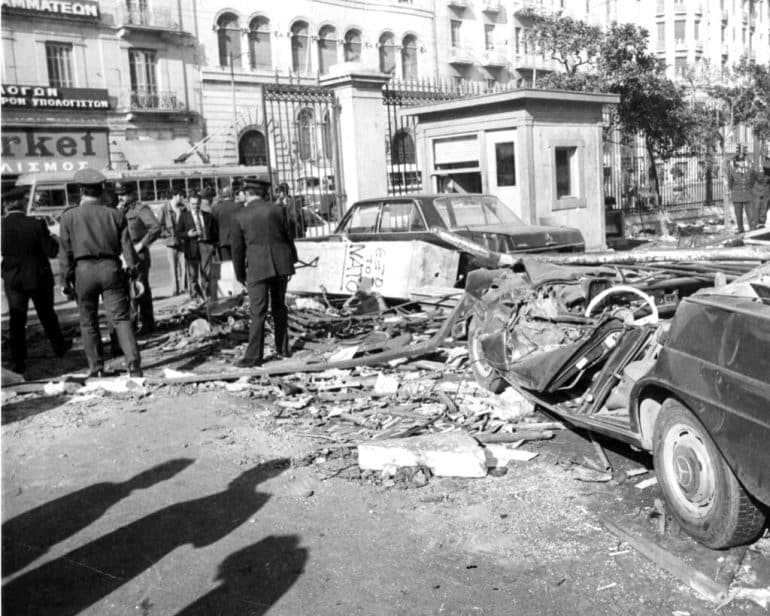Noon on November 14, 1973. A few dozen students are in an auditorium of the Law School building in Solonos. The day does not foreshadow any special event, the conversation among the students is relaxed.
There is of course the precedent of the events of February 1973, in the same building, when the student occupation was violently broken up by the police, but nothing about that day reminds us of that. Suddenly 2-3 students enter the auditorium and shout: "The police are beating people at the Polytechnic".
The students didn't have to think about it much. They decide to walk to the Polytechnic to support their colleagues. A few dozen young children come out to Solonos and walk quickly towards Exarchia. They arrive a few minutes later in Stournari to the confluence with Patision. There are no students there. But there are some police officers on the opposite corner. Some people start throwing oranges towards them. The cops fight back. Within a few minutes, the scene in Patision starts to become warlike. The children enter the premises of the Polytechnic.
The "students attacked by the police" turned out to be a rumor, but that rumor lead to a spark that was to lead to one of the greatest moments in modern Greek history.
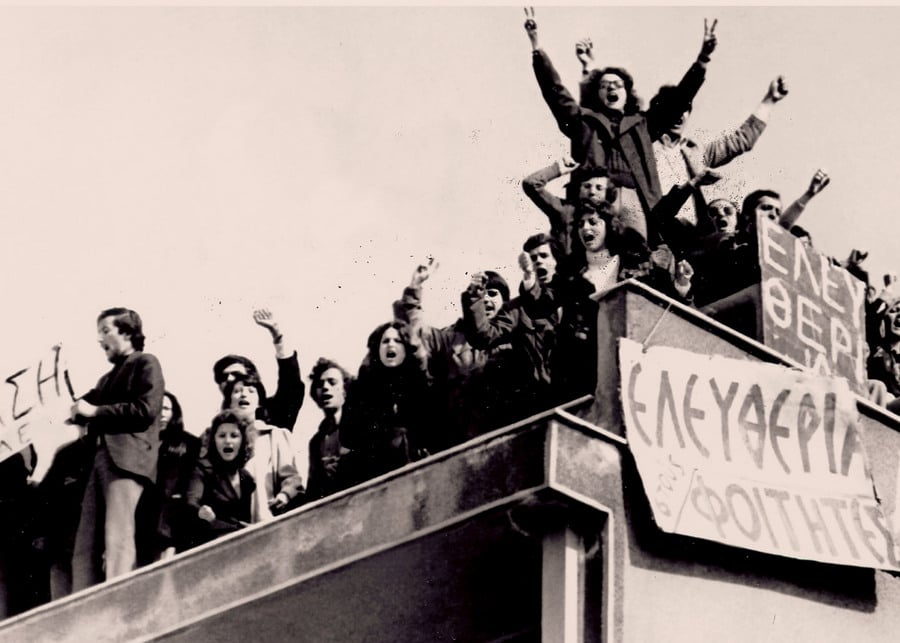
In the next two days, all eyes are fixed on the site of the Polytechnic, ears are looking for the students' radio station, the "children" have begun to write History.
What was or what we think the Polytechnic was
The 50th anniversary of the Polytechnic gives, on the one hand, the necessary historical distance to appreciate it as a historical event, on the other hand, its influence on political life, as it was shaped in the post-colonial period, remains active.
What was Polytechnic? A purely student uprising, which took a political color? An inherently political event that directly challenged the junta of colonels? Was the "Polytechnic generation" a generation of heroes or those who "built" and dominated the political system and "exploited" it, immediately after the fall of the dictatorship? Did the Polytechnic "overthrow" the junta or was it what led to the tragedy in Cyprus?
These questions come back every year at this time and are usually answered depending on the knowledge, the ideological position or the "myths" that everyone has adopted.
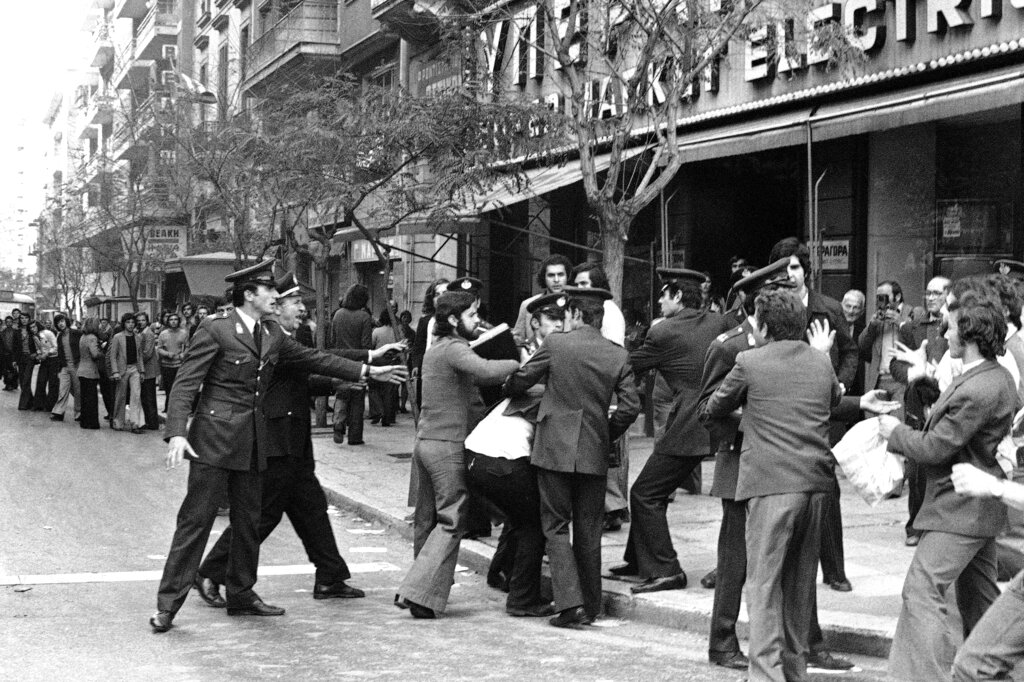
The Navy movement and "liberalization"
In order to have a clearer picture of the events we should first see what was the political and social situation in Greece at the end of 1973. The junta of the colonels has already completed six years in power, the colonels consider that the reactions towards them are piecemeal , essentially "harmless" and come mainly from students who belong to the Left. Due to the pressures they receive from abroad, they plan to proceed the next day, to "liberalize" the regime, handing over power to the politicians in a controlled manner.
The plan of the colonels was helped, paradoxically as it may sound, by a movement against them. The Navy movement in May 1973, when democratic officers tried to implement a plan to overthrow the junta was unsuccessful, its protagonists were arrested and demobilized. Dictator Papadopoulos saw in this development an opportunity to formally get rid of the institution of royalty, which had essentially been inactive since 1967, after another movement by the Navy, attributed to the former king, which also failed.
The master coup plotter Papadopoulos "dresses" the suit of "President of the Republic" and seeks legitimacy through the policies of pre-dictatorship Greece. The leaders of ERE and the Center Union, Kanellopoulos and Mavros, are negative, although some of their executives do not see the prospect of a "smooth transition" with a bad eye. Spyros Markezinis, who played a role in post-military Greece, is finally willing for the plan of the colonels. He founded the Progressive party in 1955, succeeded in electing MPs in the 1955 elections, but failed the following year. He also collaborated with the Center Union, in the 1961 elections, but also with the ERE in the 1964 elections, which were to be the last before the 1967 coup. For the military, he was the ideal person and everything seemed to go their way.
But were things so "rosy" for the Juntis? They themselves wanted to believe it, but the reality was completely different. From the end of 1972 and throughout 1973 the Universities of the country were in an uproar. Student assemblies, increasingly massive, increasingly political. The junta thought it could weaken the student movement in one move, which essentially served as the spark to get to the Polytechnic events.
He decides to cut the suspensions of students arrested for participating in the protest events, as well as "suspects". This move was exactly what we call "fuel to the fire". Across the country, in the majority of schools, students are reacting, and these protests are reaching open anti-dictatorship actions, such as the occupation of Law School in February '73. Its violent repression did not dampen the momentum of the student movement. Whatever he did to suppress it was actually strengthening it.
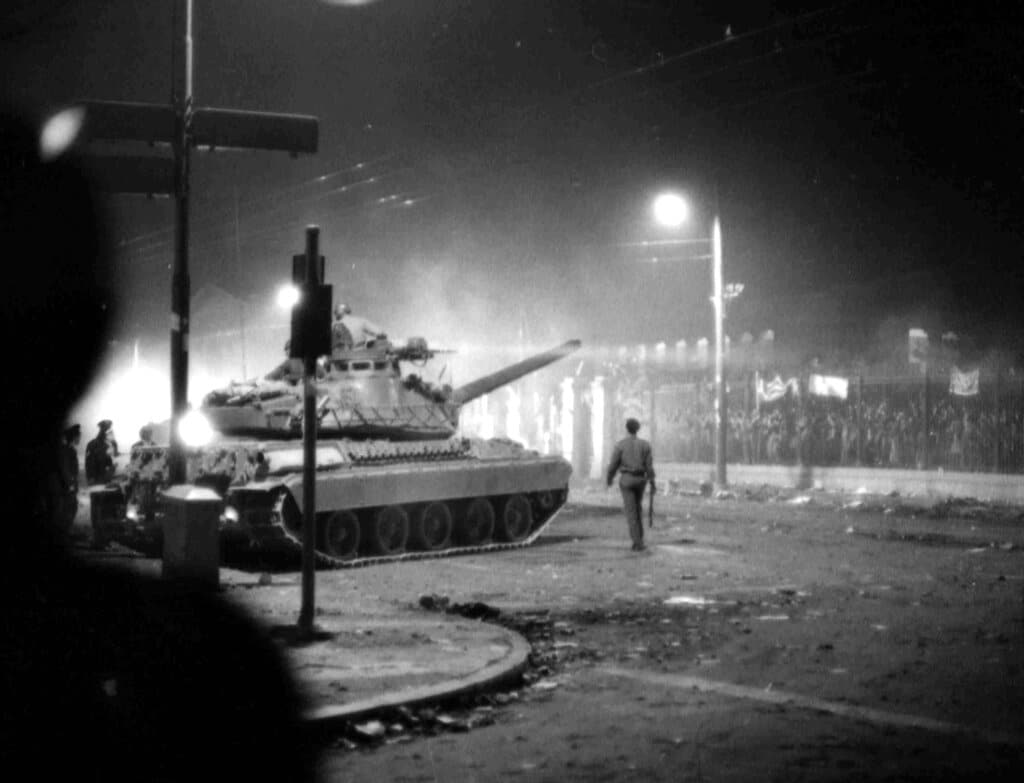
"A great celebration"
November 14, the day the occupation of the historic site of the Polytechnic began, was the first step to demolish the false image of the "liberal" colonels. The first students arriving there by reputation was hardly a random event. It was the result of a conscious choice by the students to clash with a regime that created feelings of fear for most. From the first hours, students from both the Polytechnic and other schools began to arrive, turning the first small gathering into a big celebration. This is how the protagonists felt. A climate of euphoria, a breath of hope after six dark years was felt by those who were there.
On the second day of the occupation, the radio station of the Polytechnic began to operate. "Edo Polytechneio" flooded the air of the capital, thousands of receivers tuned in. Others more daring were there, with food, water and even money to support the students.
The singer of Niki, Sofia Vembo, was watching from her balcony, proud of these "children, the children of Greece". In the early hours of November 17, her house will become a refuge for the hunted students.
On the evening of November 16, some negotiations are held to get the students to leave. The streets around the Polytechnic have been blocked by police and security personnel. But the feeling of fear has completely left the students. "When will he strip?" the loudspeakers play, 20-year-old children perched on the main gate waving Greek flags, shouting "down with the junta". For the first time, perhaps, the juntas understand that youthful momentum can swallow them up.
Armored against students
The junta decide to suppress the rebellion. And they do it the only way they know how. By force. They land an army in the center of the city, place armored vehicles across from the Polytechnic University. THE students remain in the area, they remain perched on the gate "We are unarmed" comes the voice of Dimitris Papachristou from the radio station... "Our brothers soldiers", says the announcer speaking to his peers who were ordered to line up outside the area.
They belong to the same generation, some of them may have been in the theaters a few months ago. The silence of the street is violently interrupted by the engine of the charioteer standing opposite the gate. No one backs down. Children on the gate wave flags, sing. The chariot begins to move. He approaches the gate. A few meters before he arrives he slows down. Two breathtaking seconds. The charioteer presses hard on the accelerator and the armored man melts the iron door. The army invades the area. Police officers rush to the scene and make an arrest. Gunshots are heard. By the next morning, the shooting will leave dozens dead on the streets. The junta is once again showing its hideous face. The students are writing about one of the brightest moments in Greek history.
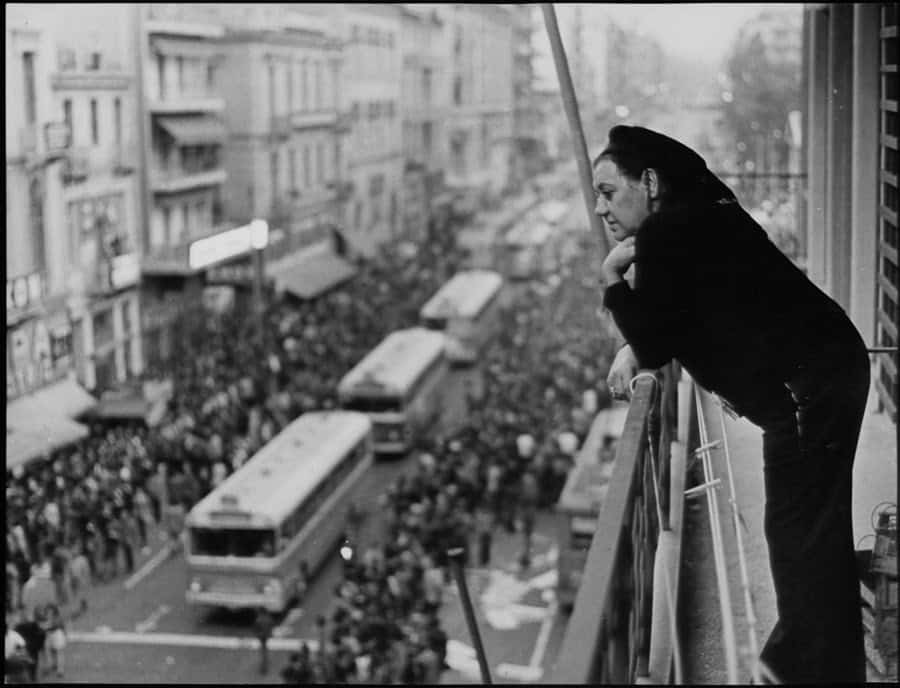
What was the "footprint" of the Polytechnic
The revolt of the Polytechnic University left a very strong imprint on the post-colonial period. Some of its protagonists entered politics and this on the one hand renewed the political staff, but at the same time created the myth of "those who redeemed it". This myth is not confirmed by reality. The vast majority of the children who participated were involved in politics - the 70's and 80's were strongly political - but never occupied positions of power, never valued its offer.
Another popular objection is that the Polytechnic "did not overthrow" the junta. The junta did not fall with the Polytechnic. On the contrary, it was succeeded by an even harsher junta, that of Ioannidis. What the Polytechnic succeeded in doing was thwarting the plan of the Juntists to hand over power at an unspecified time and amnesty themselves for the crimes they committed. There are such examples in the rest of the world, such as in Chile, where the dictator Pinochet, while handing over power to politicians, secured a senatorial position for life. The Polytechnic is essentially what led the coup plotters to the dock.
In fact, the revolt of the Polytechnic University was something that rarely happens in history. It is one of the events that show that even in the most heavily armed regime a group of young people can resist, say their own "no" to the historical distortion. The Polytechnic sent dictators to court and showed that nothing is impossible. It was the historic event that left his political mark, like no other in the last 50 years. Is the Polytechnic alive? The answer is affirmative as long as no one projects ideologies and aphorisms on him.
Source: cnn.gr
